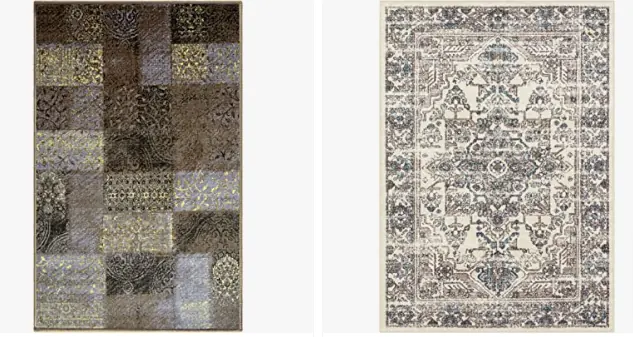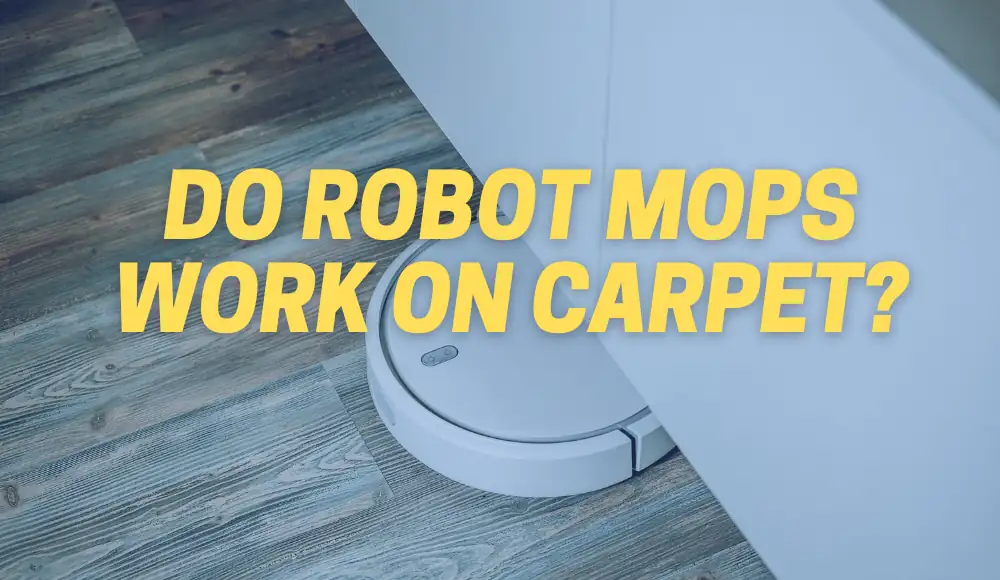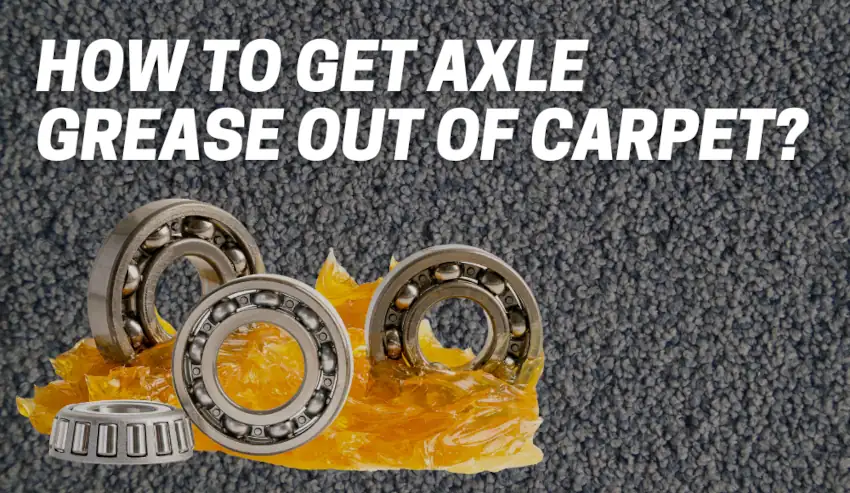Last updated on August 20th, 2023 at 01:49 am
When it comes to purchasing carpet, most people are faced with the dilemma of whether it’s worth spending extra for a higher-quality product. The question is simple – is more expensive carpet worth it? Yet the answer is not.
An in-depth search on Reddit reveals that opinions are divided. But still, it allows to see the overall picture in order to form your opinion more carefully. Especially in front of buying a carpet for your home.
The Cost Dilemma: Is It Worth Spending Extra on Carpet?
Here is a short overview of what people on Reddit think and comment regarding the extra spending on the carpet for your home.
Some users believe that you get what you pay for and that investing in high-quality carpets is worth the expense in the long run. Others argue that cheaper options offer sufficient quality and there’s no need to spend more than necessary.
So why are people so curious about this topic? After all, isn’t carpet just carpet?
Well, not exactly. Carpets come in a variety of materials, densities, origins, sizes, purposes, styles, etc.
The type of carpet you choose can affect everything from its durability to its comfort level and insulation properties.
Plus, with so many options available at varying price points, it’s understandable that consumers may be confused about which option offers the best value for money.
The Pros of More Expensive Carpet
Higher Quality Materials and Construction
Let’s be real, cheap carpet is a waste of your hard-earned money. If you’re going to invest in flooring for your home or business, why not go for the good stuff?
More expensive carpet is made with higher quality materials and constructed with attention to detail that cheaper options simply can’t match. The fibers used in pricier carpets are often more durable and resistant to wear and tear over time.
Longer Lifespan
Investing in a more expensive carpet means you won’t have to replace it as often as you would with cheaper options. With proper care, a high-quality carpet can last for many years before needing to be replaced. This means you’ll save money in the long run by not having to constantly replace worn-out, low-quality flooring.
Increased Comfort and Softness
There’s nothing worse than walking on a scratchy, uncomfortable carpet every day. More expensive carpets are designed with comfort in mind, using softer and more luxurious fibers that feel amazing underfoot.
Not only will you feel more comfortable walking on your new flooring, but guests will also appreciate the added comfort when they visit your home or business.

Better Insulation and Noise Reduction
One of the underrated benefits of investing in more expensive carpets is better insulation and noise reduction. High-quality carpets act as natural insulators, keeping warmth inside during colder months while blocking out heat during warmer months.
Additionally, the fibers used in these carpets also help absorb sound waves which reduce noise traveling between floors or rooms.
While it may seem like a larger investment upfront compared to cheaper alternatives, investing in high-quality carpet has numerous benefits that make it worth every penny.
From increased durability to added comfort and better insulation properties, there’s really no comparison. Don’t be fooled by cheap imitations; invest in the best quality carpet you can afford and enjoy its many benefits for years to come.
Does upgrading carpet increase home value?
Upgrading carpet can potentially increase home value, but it depends on various factors.
If your current carpet is worn, outdated, or in poor condition, replacing it with a high-quality, modern carpet can enhance the appeal of your home. It can make the space look fresh, clean, and more inviting to potential buyers.
Additionally, choosing neutral colors and durable materials can make the carpet more versatile and appealing to a wider range of tastes.
However, keep in mind that preferences can vary, and some buyers may prefer alternative flooring options like hardwood or tile. Therefore, it’s important to consider your local market trends and the overall style and condition of your home.

Ultimately, a well-maintained, attractive carpet can contribute to the overall value and marketability of your home, but it’s just one aspect to consider when evaluating your property’s worth.
| Advantages of More Expensive Carpet |
|---|
| Higher quality materials |
| Attention to detail in construction |
| Increased durability |
| Luxurious feel |
| Enhanced comfort and softness |
| Improved insulation properties |
| Better noise reduction |
| Long-term cost savings |
| Longer lifespan with proper care |
| Improved insulation for temperature control |
| Can increase home value |
The Cons of More Expensive Carpet
Higher Initial Cost: Worth It or Not?
Let’s face it – a more expensive carpet comes with a higher initial cost.
But is it worth it? In my opinion, absolutely.
I know some people will argue that you can find cheaper options that look just as good, but the truth is, you get what you pay for. Cheaper carpets are made from low-quality materials that wear down quickly and show signs of wear and tear in no time.
This means you’ll be replacing them sooner than later, which ends up costing more in the long run. On the other hand, investing in a more expensive carpet means you’re investing in quality.
Consumer reviews confirm this. But when reading consumer reviews, pay attention to those that were written after some time, and not immediately after the purchase. A cheaper carpet may look and feel great. For the first month or a couple.
High-quality materials are used to create these carpets which means they’re built to last longer and look better over an extended period of time. So sure, the initial cost may be steep, but when you factor in how much longer your carpet will last and how much better it looks – it’s undoubtedly worth every penny.
Professional Installation: Necessary or Overrated?
Another drawback of more expensive carpets is that they may require professional installation.
While some may argue that this is an unnecessary expense, sometimes installing carpet requires knowledge, skillset, and experience – not something anyone can do on their own without risking serious damage to their investment piece.
Consider the risk if the installation goes wrong – uneven seams, gaps between walls and baseboards or a poorly stretched surface can all cause premature wear and tear on your new high-end carpeting.
Hiring professionals who are trained to perform installation correctly ensure your investment stays pristine for years to come.
Not Always Necessary But Worth Every Cent!
It’s true that not everyone needs high-end carpets for their homes or businesses; however, investing in one is definitely worth every cent.
High-quality carpets offer numerous benefits including increased comfort, insulation, and noise reduction.
Moreover, the satisfaction of walking on a plush, luxurious carpet that lasts a lifetime is something everyone should experience. So while expensive carpets may not be necessary for all situations, they are an excellent investment for anyone looking to create a durable and comfortable living or working environment.
| Desadvantages of More Expensive Carpet |
|---|
| Risk of DIY installation damage |
| Long-term cost savings may not be immediate |
| Professional installation may be required |
Does carpet devalue your home?
Carpet can affect the value of your home, but it’s not a one-size-fits-all answer. Factors like the quality, condition, and style of the carpet, as well as local market trends, play a role in determining its impact on home value.
While some buyers may appreciate the warmth and comfort of carpet, others may prefer hardwood or other flooring options.
However, it’s important to note that carpet can add aesthetic appeal and help create a cozy atmosphere in certain areas of the home, such as bedrooms or living rooms.
Ultimately, maintaining the cleanliness and condition of your carpet, considering the preferences of potential buyers in your area, and ensuring it complements the overall design of your home can help maximize its value.
So, it’s all about finding the right balance and making choices that enhance the overall appeal of your home.
Reddit Opinions on More Expensive Carpet
“You get what you pay for” mentality
Oh, how many times have we heard this phrase when shopping for a product or service?
And while it’s true that sometimes paying more means getting better quality, it’s not always the case. And when it comes to carpet, the sentiment is no different.
Sure, more expensive carpets often use higher-quality materials and construction techniques that result in better durability and longevity. But if you’re not ready to fork out thousands of dollars for a plush carpet, there are still plenty of affordable options that can meet your needs just fine.
Don’t let the snobbish consumers fool you into thinking cheap means bad quality or expensive means good quality. The truth is somewhere in between.
Personal experiences with both cheap and expensive carpet
It is always a good option to look at the experiences of other people.
The Reddit community is one of the best and biggest sources for any question you can think of. Expensive carpet issues are being discussed on Reddit for years already.
We took our time to read through a bunch of related threads. Here are the results of what we have found out. We present them in a list of shortened theses.
Here you will find not only opinions on whether to buy or not expensive carpets, but ideas on how to maintain your carpet, less expensive but still qualitative alternatives, etc.
| Main Points of View: Is More Expensive Carpet Worth It? |
|---|
| Higher quality carpets tend to have better stain resistance, crush resistance, and clean better. |
| Carpets are preferred in bedrooms and cozy spaces for comfort underfoot. |
| Regular maintenance such as vacuuming and professional cleaning can keep carpets looking great and last longer. |
| More expensive carpet tiles can be a practical and affordable option, allowing easy replacement of stained squares. |
| Cheap builder-grade carpets are more prone to dirt, stains, and wear. |
| Nylon and triexta are recommended as premium materials for softer and more durable carpets. |
| A good carpet pad improves comfort and prolongs carpet life. |
| Darker colors or fleck/tri-color patterns can help camouflage stains and wear. |
| Berber loop in polypropylene is the hardest-wearing and most stain-resistant carpet option. |
| Wool is expensive but more prone to staining and wearing out faster than synthetic fibers. |
| Good carpet pad improves comfort and prolongs carpet life. |
| Care should be taken with certain toys and substances that can be difficult to remove from carpets. |
| Some people prefer hard surface flooring with washable rugs instead of carpets. |
| Upgraded carpets and thicker pads offer a more luxurious and durable experience. |
| Carpeting with stain-resistant treatments may have chemical coatings not ideal for kids. |
| Taking off shoes at the front door can help maintain carpet cleanliness. |
| Bare feet on carpets may leave oils that attract dirt and dust, making them harder to clean. |
| High-quality carpets with dense cut pile or loop construction tend to be more durable. |
| Cheap carpets tend to wear poorly and may require spot dyeing. |
| Hard surface flooring with rugs can be a good alternative for households with toddlers. |
| Regular cleaning and maintenance are necessary to keep carpets in good condition. |
| Carpets treated with stain-resistant chemicals may rub off on people and pets. |
| Carpet outlets may offer discounted prices on remnants of high-quality carpets. |
| Yarn density is an important factor for liquid resistance and easy cleaning. |
| Expensive carpets are easier to maintain and offer softer padding. |
| Regular vacuuming is crucial to prevent dirt and debris from damaging carpet fibers. |
| Darker carpet colors are better at hiding stains and wear over time. |
| Replacing carpets after 8-10 years is recommended to maintain cleanliness and appearance. |
Discussion on whether or not the benefits outweigh the cost
At the end of the day, it really comes down to personal preference and budget when choosing between a more expensive or affordable carpet option.
If you’re someone who values comfort above all else and doesn’t mind spending a bit more money, then a higher-end carpet may be worth the investment.
But if you’re watching your wallet and can live with a basic carpet that gets the job done, then there’s no need to splurge on something that may not be necessary for your situation.
Ultimately, it’s up to each individual consumer to decide whether or not the benefits of more expensive carpet outweigh the cost. But don’t let anyone shame you into thinking that you must spend more money to get a quality product.
Niche Subtopics to Consider
Environmental impact of cheaper vs more expensive carpet options
As consumers, we have a responsibility to consider the environmental impact of our purchasing decisions.
When it comes to carpets, this means taking a closer look at the materials used in production, as well as the manufacturing process. Cheaper carpets are often made with synthetic fibers such as polyester or nylon, which are derived from non-renewable resources and require energy-intensive processes to produce.
In addition, these materials can release harmful chemicals into the air over time, contributing to indoor air pollution.
On the other hand, more expensive carpets made from natural materials like wool or silk tend to have a lower environmental impact overall.
These fibers are renewable and biodegradable, meaning they won’t sit in landfills for centuries after they’ve served their purpose. Additionally, natural materials often require less energy and water during production than their synthetic counterparts.
Maintenance costs over time
When considering whether or not it’s worth investing in more expensive carpeting, it’s important to factor in maintenance costs over time. While cheaper carpets may seem like a bargain upfront, they may not hold up as well over time and will likely need to be replaced sooner than their higher-end counterparts.
This means spending money on installation fees and new carpet every few years.
On the other hand, investing in more expensive carpeting can save you money on maintenance costs in the long run.
Higher quality materials and construction mean that these carpets will last longer before needing replacement. Additionally, some high-end carpets come with warranties that cover any necessary repairs or replacements.
How do different types of carpet compare in terms of cost and quality
When deciding whether or not it’s worth investing in more expensive carpeting, it’s important to compare different types of carpet based on both cost and quality.
Wool carpets
While wool carpets tend to be the most expensive, they also offer superior durability and softness compared to synthetic fibers.
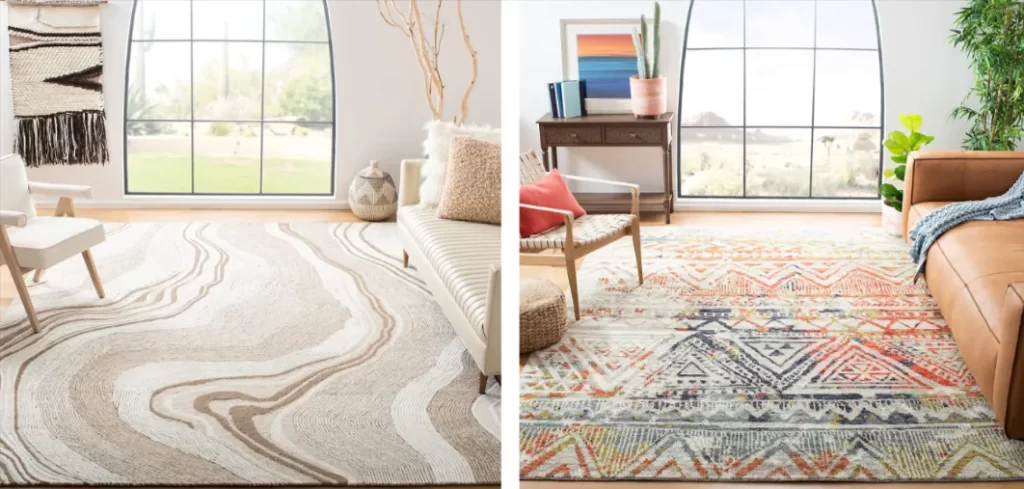
Nylon carpets
Nylon is another popular option for high-end carpeting, as it’s known for its strength and stain resistance.
Polyester carpets
Polyester, while cheaper than wool or nylon, tends to be less durable and may not hold up as well over time. Additionally, it may not offer the same level of softness or comfort as natural fibers.
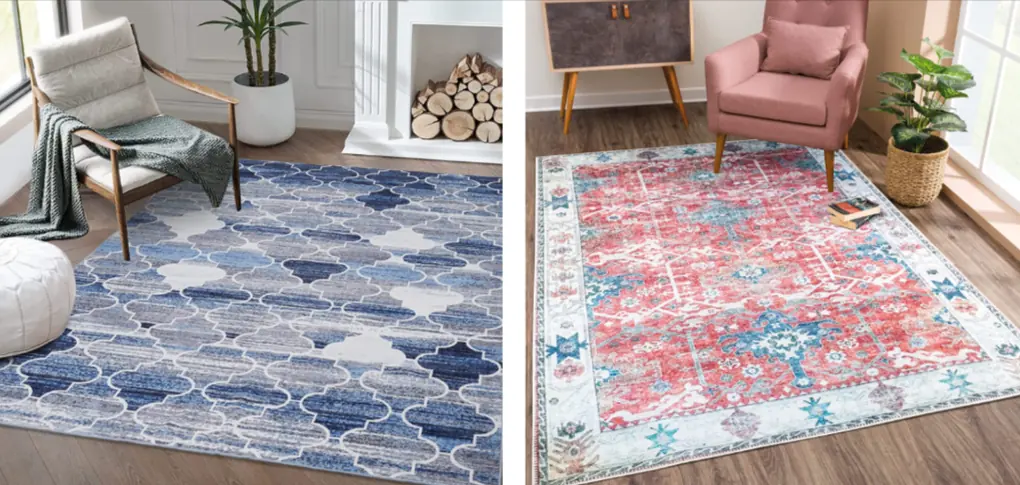
Overall, when deciding whether or not more expensive carpeting is worth the investment, it’s important to consider a range of factors including environmental impact, maintenance costs over time, and different types of carpet based on cost and quality.
By taking all of these factors into account, you can make an informed decision that meets both your budget and your needs in terms of comfort and style.
Lesser Known Details About Carpet Quality
When it comes to carpet quality, there are some lesser-known details that can make a big difference in your purchasing decision. One of the most important factors in determining carpet quality is density.
Density refers to how tightly packed the fibers are in the carpet. The higher the density, the more durable and comfortable the carpet will be.
Many people think that thickness is a good indicator of quality, but this couldn’t be further from the truth. A thick carpet may feel plush underfoot, but if it’s not densely packed, it will quickly lose its shape and wear down over time.
In contrast, a thinner but densely packed carpet will hold up much better over time. So don’t let thickness fool you – density is king.
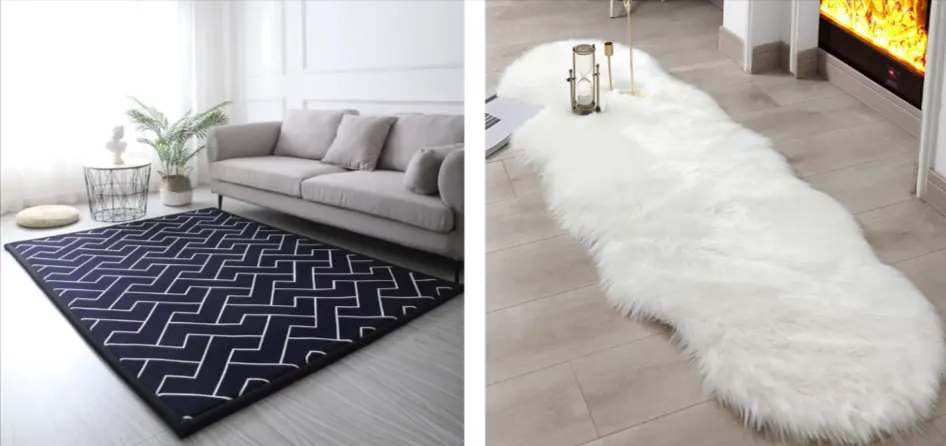
The Importance of Density in Determining Carpet Quality
When shopping for carpet, make sure to ask about density before making your decision.
A good rule of thumb is to look for carpets with at least 2000 fibers per square inch – anything less than this and you may be sacrificing durability and comfort for a lower price tag.
Another factor to consider when looking at density is how tightly packed the fibers are together.
Some manufacturers will use shorter fibers or pack them more loosely to save on costs, but this can result in a less durable product that wears down faster than its denser counterparts. So next time you’re shopping for carpet, remember that thickness doesn’t always equal quality – it’s all about that density.
Differences Between Loop Pile and Cut Pile Carpets
Another lesser-known detail about carpets is the difference between loop pile and cut pile carpets.
Loop pile carpets feature loops of yarn that are either left uncut or cut at an even height to create a uniform surface. Cut pile carpets have loops that have been cut at different heights to create a plush surface.
Loop pile carpets are generally more durable than cut pile carpets since the loops provide added support and less surface area for dirt and debris to accumulate. However, they may not be as soft underfoot as cut pile carpets.
Cut pile carpets are often seen as more luxurious since they have a plush feel underfoot. However, the downside is that they tend to show wear and tear more easily than loop pile carpets since there is more surface area for dirt and debris to accumulate.
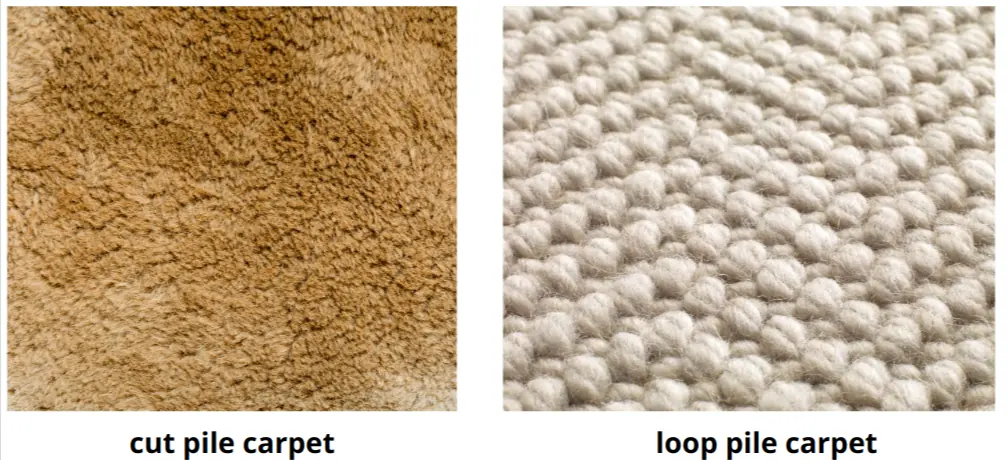
Is it cheaper to put in carpet or flooring?
Generally, carpet installation tends to be more affordable compared to other types of flooring, such as hardwood or tile.
However, the total cost can vary based on factors like the quality of materials, the size of the area, and the specific installation requirements. It’s always a good idea to compare prices and consider the long-term durability and maintenance costs of different flooring options before making a decision.
How much should you spend on carpet?
When it comes to how much you should spend on carpet, it depends on several factors such as the size of the area, the quality and type of carpet, and your personal budget.
On average, carpet prices can range from $2 to $10 per square foot. However, it’s important to note that this is a general range and the actual cost can be higher or lower based on various factors.
The majority of homeowners typically invest between $2 and $4 per square foot for a synthetic carpet of good quality, which is crafted using polyester or nylon fibers.
As a general guideline, it’s recommended to allocate around 10% to 20% of the total value of your home on flooring, including carpet.
For example, if your home is valued at $300,000, you might consider spending $30,000 to $60,000 on flooring, including carpet. However, keep in mind that this is just a rough estimate and it’s important to prioritize your budget based on your needs and preferences.
Additionally, remember to consider the long-term value and durability of the carpet to ensure you make a wise investment that will withstand daily wear and tear.
Do more expensive carpets clean better?
The price of a carpet doesn’t necessarily determine its cleaning performance.
While more expensive carpets may be made with higher-quality materials, it’s important to note that cleaning effectiveness depends on various factors like the type of fibers, density, and construction.
Some carpets, regardless of their price, may have specific features like stain resistance or easy maintenance that can contribute to better cleaning results.
However, it’s always recommended to follow proper cleaning practices and use suitable cleaning methods and products, regardless of the carpet’s price, to ensure optimal cleanliness and longevity.
Conclusion
The debate over whether or not a more expensive carpet is worth it has valid arguments on both sides.
The pros of higher quality materials, longer lifespan, increased comfort and softness, and better insulation and noise reduction cannot be ignored. However, the cons of a higher initial cost, requiring professional installation, and not being necessary for all situations are equally important to consider.
Reddit opinions on this topic are split. Some people believe in the “you get what you pay for” mentality and swear by more expensive carpet options.
Others argue that cheaper options can still offer adequate quality at a lower cost. It ultimately depends on personal preference and budget.
When considering niche subtopics such as environmental impact and maintenance costs over time, it is important to weigh the long-term effects on both your wallet and the planet.
Additionally, understanding lesser-known details about carpet quality such as density, pile type, and signs of wear can help you make an informed decision when choosing between cheaper or more expensive options.
Overall, while there is no definitive answer to whether a more expensive carpet is worth it or not – there are valid points on both sides of the argument.
It ultimately comes down to personal preference, budget constraints, and weighing the pros against cons when making a decision about what type of carpet to invest in for your home or office space.

